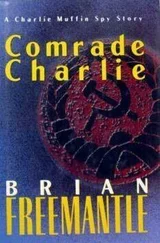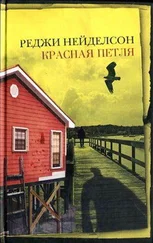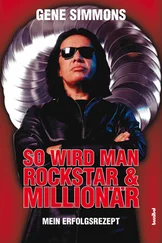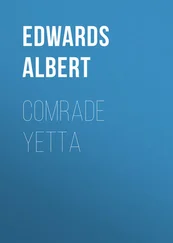This isn't a conventional biography; it isn't really a biography at all. I think of it as a kind of travel book through a now half-lost time and place. My search for Dean Reed took place at the end of the Cold War, as the socialist empire cracked up and the monolith began to topple like those statues of Lenin pulled down by the crowds in Moscow.
From the moment in June 1986 when I saw Dean Reed's obituary, I followed his ghost, trailing the evidence, mired in the big rich fruitcake of a life. Dean moved through it singing "Bye-Bye Love" with Phil Everly in East Berlin and Woody Guthrie songs on the Siberian Express, and making spaghetti westerns with Yul Brynner. He was part Forrest Gump, part political hustler, part American hero.
Comic, triumphal, tragic, incredible, here were all the things about the East that I'd never read in any newspaper, these tales about music and style and sex and teenage life, about what rock and roll meant to them, about what the Beatles meant in the USSR. Above all, here was the story of the yearning for the West. Here was a Cold War sideshow invested in one handsome American boy from Colorado who, guitar on his back, struck out in search of fame and fortune and found it on the other side of the world. And even after I had finished this book and it was published in England and Leslie Woodhead made a BBC documentary based on it, the story stuck to my life. In 1999, I got a call from Hollywood.
"I've sold your book to Tom Hanks," my agent said.
And it was true, as it turned out, and eventually I met Tom Hanks, but that came later.
Sixteen years have passed now since the Berlin Wall came down on November 9, 1989, and Dean Reed will soon have been dead for twenty years. So it seems like a good time to take another look at his life. After the Berlin Wall fell, I was able to track down information about Reed that I couldn't access before. Based on this, I reworked the original book, incorporating things as I saw them on the road in those astonishing years. It is now finally published in the United States for the first time.
Looking back, what I feel most now is how exciting it was as late as the late 1980s: the still thrilling, still terrifying crossing over the Berlin Wall, the look behind the Iron Curtain, the sudden contact with the so-called enemy and the realization that, for many, all they wanted was our music. Give us rock and roll! Dean Reed gave it to them.
Here was a guy who lived at the intersection of East and West, them and us. The crossing over gave Dean Reed glamour, and made him Comrade Rockstar.
Reggie Nadelson
New York
February 2006
DEATH IN BERLIN FOR DEFECTOR WHO CHANGED HIS TUNE
MYSTERY OF POP STAR IN LAKE: IT WAS MURDER SAYS MANAGER
DEAN REED, THE SINGER WHO WENT EAST AND THEN WANTED TO COME IN FROM THE COLD
The crumpled newspaper cuttings dated June, 1986 were in my bag as I climbed up the viewing platform near Checkpoint Charlie and looked down at the Berlin Wall on the first day of my search for Dean Reed. How he died, and who he was; most of it lay on the other side of the Wall that split the world for as long as I could remember. It was November, 1988.
Down a jumble of gray streets fifteen minutes from the center of West Berlin, the Berlin Wall wasn't marked on a lot of Berlin maps, but it felt like the border of the world. Whenever I heard the phrase "Iron Curtain," in my mind's eye I always saw the Berlin Wall.
I saw it for real now, in front of me, this curtain of fortified concrete, eight feet high, twenty-nine miles long, topped with balls of barbed wire, covered on the Western side with graffiti, splattered in the East with blood. I was on my way to the other side, to East Berlin, where Dean Reed lived and died, to see his house, to find his albums, to try to get a sense of who he was, this man who had haunted my dreams since I had first seen him on 60 Minutes .
Dean Reed's death had been the subject of plenty of speculation. People variously believed that he had been murdered by the East German Stasi, the KGB, the CIA, and neo-Nazis.
From the top of the viewing platform at Checkpoint Charlie, I could see not just the Berlin Wall but the other side. I looked at the unsmiling border guards in a watchtower peering through binoculars at the tourists, who looked back through their cameras. Between us was the dead zone of no-man's-land. A few months later, a twenty-two-year-old waiter jumped over the Wall because he could no longer wait, and he was shot dead. He was the last person to die there.
On the platform near me, a West German woman was showing the Wall to an English friend. Turning to me, she said, "Do you think they shall take this down? They are sometimes talking so."
"I hope so. Wouldn't it be great?!" I exclaimed.
She smiled knowingly, tucked her beautifully cut blonde hair behind her pink shell of an ear, and shouldered her Gucci bag.
"If they take it down, there will be trouble," she said. "First Turks shall come over, and then German nationals. These East Germans shall take our jobs. They will invade our department stores."
That's what really got to her: if they dismantled the Wall, the East Germans might charge into the KaDeWe, denuding it of most of its 400 varieties of sausage and all of the handbags. She didn't have to worry. Two years later, on the Sunday in November when the Wall was sliced open and East Germans raced into the West, the New York Times reported: "The big department stores such as KaDeWe were closed, despite recently passed legislation that would have allowed them to stay open."
"You know what I am thinking?" she asked.
"What?"
"If the East Germans take the Wall down, we in the West will have to build another."
I climbed down from the platform and got back in the car.
The line of cars moved slowly into the border crossing. Leslie Woodhead, who was hoping to make a drama-documentary out of the Dean Reed story, was with me on this first trip East and I was glad. He had worked in Eastern Europe a lot and I figured he was knowledgeable when it came to doing business in Communist countries. As we pulled into the crossing proper, passing from West to East, then stopped, a man pushed a little mirror on wheels underneath the car in front of us.
"The spy's carpet sweeper," Leslie said.
My stomach turned over as we edged forward. A pale border guard put his head out of his cubicle like a jack-in-the-box and stared into the car. I had never been to the East before, but I'd seen all the movies.
The building where you showed your passport reminded me of a drive-through confessional; the young soldier, like an angry priest, snatched my passport, then snapped his window shut, leaving us to wait without any identity under a sickly white light in no-man's-land.
Eventually, the guard returned our passports and we bought day visas inscribed on what felt like cheap toilet paper, stiff, slick, brown, foreign.
Creep, I thought silently. "Have a nice day," I said, and the guard looked startled.
Whenever Dean Reed went through Checkpoint Charlie, though, he apparently always said "hi" to the guards, and Hans, or Heinz, or Hermann, whoever was on guard duty, would go home and say, "Dean Reed passed by today." He was so famous that for years you could just write DEAN REED, EAST BERLIN on a postcard and it would get to him.
The empty streets that led away from the border were full of potholes. The walls of the dank gray buildings that lined the roads were still pocked with shell marks from a war that had been over for more than forty years. I was expecting posters with socialist slogans or banners or stylized graphics of Lenin's head, but here were none, only the crappy streets with half the streetlights broken, crumbling buildings stained by the insistent rain, and shop windows that featured maybe a sparkly nylon blouse or a can of Spreewald pickles or some fancy china no one wanted. Still there was something thrilling about being here; I had crossed the Berlin Wall. How could I have known then that, in two years' time, the Wall would be a pair of earrings in Bloomingdale's?
Читать дальше











